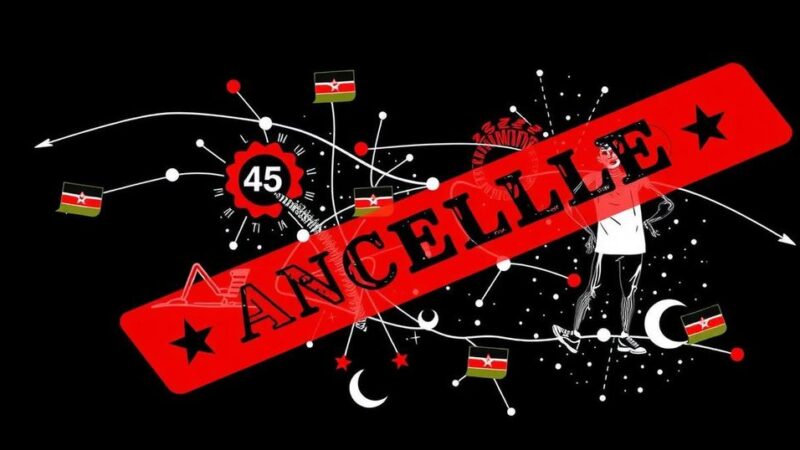Uganda faces a severe corruption issue, costing the nation approximately $2.5 billion annually—nearly a quarter of its budget. The Inspectorate of Government underscores this challenge, revealing that corruption predominantly affects sectors like environmental protection, while President Museveni’s government struggles to restore public trust amid ongoing scandals.
Corruption is a persistent and significant challenge facing Uganda, costing the nation an estimated $2.5 billion each year, which constitutes nearly 25% of its annual budget. This alarming figure was presented by Beti Kamya Turwomwe, the head of the Inspectorate of Government, during an address to the press. Uganda ranks poorly on Transparency International’s corruption index, placed 141 out of 180 countries, highlighting the scope of the issue in the East African nation. Despite repeated assurances from President Yoweri Museveni regarding reforms, several high-profile corruption cases involving public officials have emerged, sparking public protests against graft. Kamya Turwomwe emphasized that the approximate loss of 9.144 trillion shillings—or $2.5 billion—is sufficient to fund 23 percent of the national budget, underscoring the detrimental impact of corruption on public services. “Losing such colossal sums that would have gone into delivery of services to the citizens is a wake-up call to all the citizens to fight the vice,” she stated. As of now, her department has recovered a mere $2 million of the misappropriated funds, attributing the challenges to insufficient resources for their operations. In the latest annual report examined by the government body, it was revealed that the environmental protection sector experiences the highest corruption losses, estimated at 2.8 trillion shillings, or about $700 million per year. Utility costs, particularly regarding access to essential services like water and electricity, are linked to further losses, nearing $130 million. The report’s summary notes that the estimates provided might still underestimate the true cost of corruption in Uganda, as several costs are difficult to quantify and accurate data is often lacking. This sobering analysis coincided with public outrage following President Museveni’s pardon of a government official who had previously defrauded $1.2 million from public funds after serving only five years of a ten-year sentence. This ongoing saga of corruption illustrates the urgent need for systemic reform and accountability to restore public trust and ensure that financial resources effectively benefit the people of Uganda.
The issue of corruption in Uganda has been highlighted in various reports and studies, indicating a pervasive culture that significantly hampers economic development and public service delivery. An alarming report conducted by the Government Transparency Institute suggests that a substantial portion of governmental resources is lost to corrupt practices. With the economy predominantly driven by agriculture, the diversion of funds away from essential services has dire consequences for the populace, many of whom rely on public resources for their livelihoods. Public sentiment has become increasingly frustrated, prompting protests and calls for significant reforms to combat this rampant issue. The malfeasance within governing bodies has garnered national and international scrutiny, revealing a pressing need for effective anti-corruption measures.
In conclusion, Uganda’s corruption crisis demands immediate attention and action from the government and citizens alike. The staggering annual losses amounting to $2.5 billion illustrate the significant financial impact of graft on public services and the economy. As the government grapples with the realities of corruption, recovery of lost funds remains critically low, signaling a desperate need for improved governance and transparency. The public’s increasing unrest and demand for accountability serve as a crucial reminder that addressing corruption is essential for the nation’s progress.
Original Source: www.seychellesnewsagency.com






